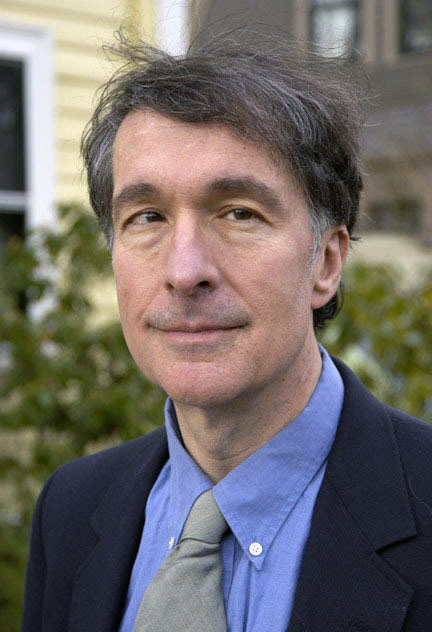 |
 |
He has received honorary degrees from 26 colleges and universities, including institutions in Bulgaria, Chile, Greece, Ireland, Israel, Italy, and South Korea. In 2005 and again in 2008, he was selected by Foreign Policy and Prospect magazines as one of the 100 most influential public intellectuals in the world.
The author of 25 books translated into 28 languages, and several hundred articles, Gardner is best known in educational circles for his theory of multiple intelligences, a critique of the notion that there exists but a single human intelligence that can be adequately assessed by standard psychometric instruments.
Multiple Intelligences is Howard Gardner’s psychological theory about people and their different types of intelligences (logical, visual, musical, etc.). There are Eight Intelligences that each people has. A person maybe has two or more dominant intelligences, and maybe there are some person have a balance intelligence for the eight intelligences. We are all different because some of those types are stronger than others in each person.Gardener developed the "Theory of Multiple Intelligences" which says, in effect, that IQ should not be measured as an absolute figure in the way that height, weight or blood pressure are. It's a crucial blunder, he maintains, to assume that IQ is a single fixed entity which can be measured by a pencil and paper test. |
| It's not how smart you are but how you are smart, says Gardner. As human beings, we all have a repertoire of skills, he says, for solving different kinds of problems. And he defines intelligence this way: "An intelligence is an ability to solve a problem or fashion a product which is valued in one or more cultural settings." |
Gardner revealed his theory in his ground-breaking book "Frames of Mind" in which he outlined seven distinct intelligences. He subsequently added an eighth.
The Accelerated Learning Network has taken Gardner's theory and put it into practice, creating products for students of all ages. These products enable the student to learn according to his own learning preferences no matter how he is being taught. In addition, we run through a cycle of learning activities involving all Intelligences so that everyone has an equal opportunity to learn.
Here are the eight Intelligences:
Linguistic Intelligence
The ability to read , write and communicate with words. Authors, journalists, poets, orators and comedians are obvious examples of people with linguistic intelligence.
Famous examples: Charles Dickens, Abraham Lincoln, T.S. Eliot, Sir Winston Churchill.
Logical-Mathematical Intelligence
The ability to reason and calculate, to think things through in a logical, systematic manner. These are the kinds of skills highly developed in engineers, scientists, economists, accountants, detectives and members of the legal profession.
Famous examples: Albert Einstein, John Dewey.
Visual-Spatial Intelligence
The ability to think in pictures, visualize a future result. To imagine things in your mind's eye. Architects, sculptors, sailors, photographers and strategic planners. You use it when you have a sense of direction, when you navigate or draw.
Famous examples: Picasso, Frank Lloyd Wright.
Musical Intelligence
The ability to make or compose music, to sing well, or understand and appreciate music. To keep rhythm. It's a talent obviously enjoyed by musicians, composers, and recording engineers. But most of us have a musical intelligence which can be developed. Think of how helpful it is to learn with a jingle or rhyme (e.g. "Thirty days has September...").
Famous examples: Mozart, Leonard Bernstein, Ray Charles.
Bodily-Kinesthetic Intelligence
The ability to use your body skillfully to solve problems, create products or present ideas and emotions. An ability obviously displayed for athletic pursuits, dancing, acting, artistically, or in building and construction. You can include surgeons in this category but many people who are physically talented–"good with their hands"–don't recognize that this form of intelligence is of equal value to the other intelligences.
Famous examples: Charlie Chaplin, Michael Jordan.
Interpersonal (Social) Intelligence
The ability to work effectively with others, to relate to other people, and display empathy and understanding, to notice their motivations and goals. This is a vital human intelligence displayed by good teachers, facilitators, therapists, politicians, religious leaders and sales people.
Famous examples: Gandhi, Ronald Reagan, Mother Teresa, Oprah Winfrey.
Intrapersonal Intelligence
The ability for self-analysis and reflection–to be able to quietly contemplate and assess one's accomplishments, to review one's behavior and innermost feelings, to make plans and set goals, the capacity to know oneself. Philosophers, counselors, and many peak performers in all fields of endeavor have this form of intelligence.
Famous examples: Freud, Eleanor Roosevelt, Plato.
In 1996, Gardner decided to add an eighth intelligence (Naturalist) and in spite of much speculation resisted the temptation to add a ninth–Spiritualist Intelligence.
Naturalist Intelligence
The ability to recognize flora and fauna, to make other consequential distinctions in the natural world and to use this ability productively–for example in hunting, farming, or biological science. Farmers, botanists, conservationists, biologists, environmentalists would all display aspects of the intelligence.
Famous examples: Charles Darwin, E.O. Wilson.
Traditionally, academic subjects have been taught in ways that largely involve two intelligences–linguistic and logical-mathematical. Now consider what an IQ test basically measures–ability with words and numbers. So students who are naturally strong in linguistic and mathematical intelligences do well on the standard Stanford-Binet IQ test. Therefore, it's a fairly good predictor of success at school because the way we teach (lectures) and the material with which we deal (logically constructed books) depend heavily on these two intelligences. Since teachers are drawn from people who do well at school, it's a self-perpetuating system.
But is an IQ result a good predictor of happiness, of economic success, of success in relationships, of success in life? Not really. In a modern society, of course, linguistic and logical-mathematical ability are very important, but there are six other intelligences. It is when you marshal all of your intelligences that you really begin to use your full brain power.
|
 |






